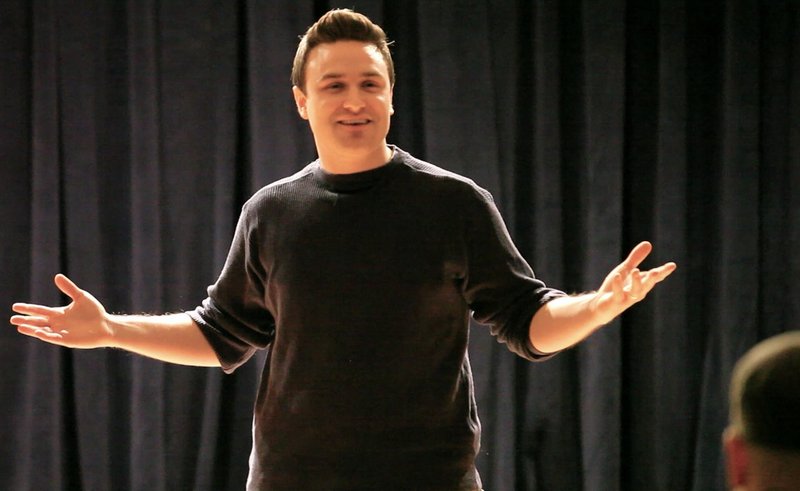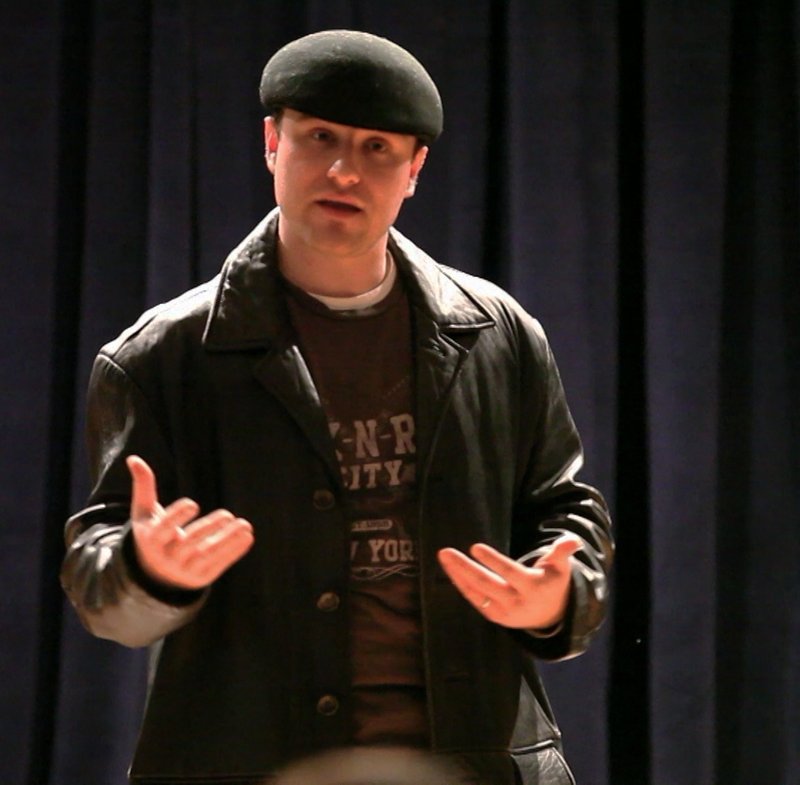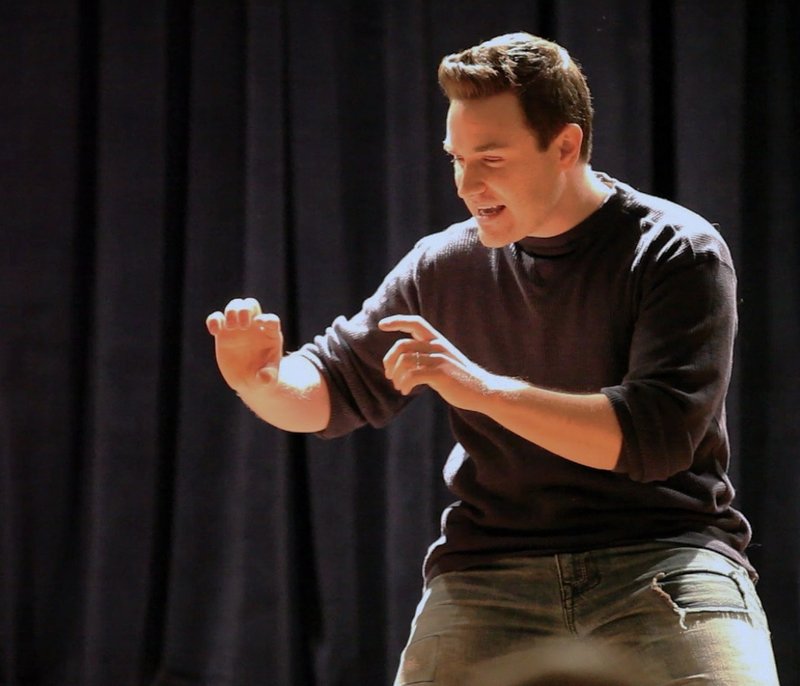Two months into his new job, Aaron Calafato knew he had made a mistake.
He was hired to recruit students to enroll in a for-profit university in the Midwest. He didn’t want the job, but felt he had to take it: Between them, he and his wife owed $1,500 a month in student loans.
He quit the acting job for which he had gone to school to get, moved from New York to a big Midwestern city, and took a job he did not want because he was obligated to begin paying the loans.
“So I was putting other students into debt to pay off my own student-loan debt,” he said by phone. “It was the most ridiculous thing I could think of. There was so much drama and hypocrisy in it, that I just had to write about it.”
The result is Calafato’s one-man play, “For Profit.” He brings the social-theater piece to Portland for four shows beginning Thursday at Lucid Stage. Performances continue through Sunday.
Following Thursday’s debut, Lucid Stage will host a panel discussion about the student-debt crisis. The panel will include state Rep. Diane Russell; Rob Brown, executive director of Opportunity Maine; and Nicola Wells, state director for the Maine League of Young Voters.
In addition to writing the play, Calafato acts in it. It runs about 75 minutes without an intermission.
“It’s a hybrid of storytelling and performance; very raw and minimal,” he said. “We’ve done this on a number of campuses, and things seem to be going well. We’re booked through 2013.
“It’s a big topic these days, and it looks like a lot of universities or organizations within universities are interested in having this dialogue. Of course, it’s entertainment, but we want to create awareness.”
Calafato took the job as an admissions adviser with an open mind. He thought he had made a wise career move, financially and otherwise.
“But within the first two months, it became one of the most jarring experiences of my life in terms of how prospective students were treated and how we were trained,” he said, declining to name the institution. “It was predatory, and we were trained to commodify students just to get them enrolled.
“It became very clear that my job was not to make sure the students were ready, but to get them over to the financial aid office” to see if they qualified for federal student loans.
He went home at night feeling morally corrupt. “I just couldn’t sleep.”
Calafato admits that his former employer stands as a single example, but suspects that the practice of qualifying as many students as possible for financial aid is widespread at both private for-profit and public non-profit educational institutions.
“For Profit” explores the issue through the lens of one person’s experience, but it provides context for the larger issue that already is a flashpoint in the upcoming national election, said Liz McMahon, Lucid Stage director.
“It’s an interesting and timely topic that affects a lot of people,” she said.
According to national statistics, Maine students have an average debt load of $28,893, the second-highest in the nation. Because of their debt load, students are forced to move out of state in search of better-paying jobs in larger cities.
Russell, who lives in Portland, said the student-debt crisis is “a real problem for our economy here in Maine. It prevents people from being able to stay and invest in the state.
“We just need to raise awareness about the issue. Instead of blaming the students, we need to listen to them and invest in them. A lot of parents often assume that kids are not working hard enough to pay their bills or are not working hard enough to find jobs. But kids are working hard, and a lot of high school seniors are asking the question, ‘Is a college education worth it?’ — and rightly so.”
Russell, 35, carries $60,000 in student-loan debt herself. She said it has prevented her from buying a decent car or a house.
“I admit, I am a little a bitter,” she said. “All through school, we are told, ‘If you get a college education, you will get a job and make ends meet. If you want to make it, you have to get a degree.’
“Now we get a degree, and it’s worth almost nothing. And we’re paying extra for it. It just doesn’t make any sense.”
Correction: The article was edited at 9:09 on Thursday, August 2, 2012 to correct Calafato‘s first name.
Staff Writer Bob Keyes can be contacted at 791-6457 or:
bkeyes@pressherald.com
Twitter: pphbkeyes
Send questions/comments to the editors.






